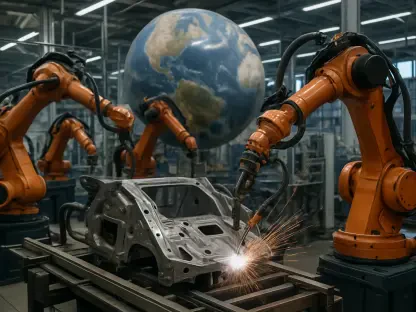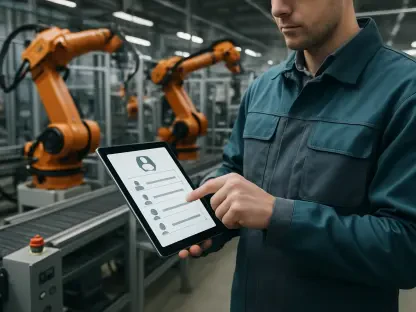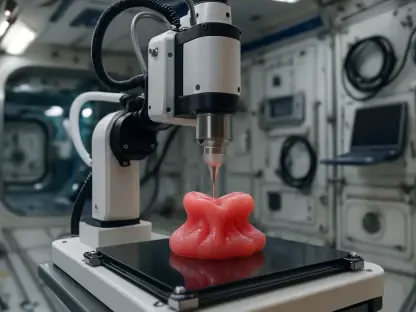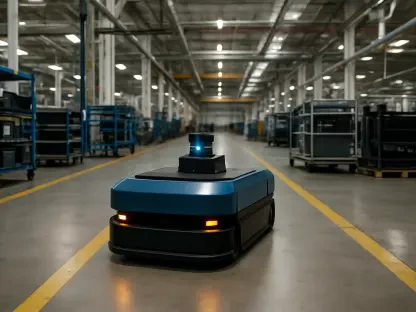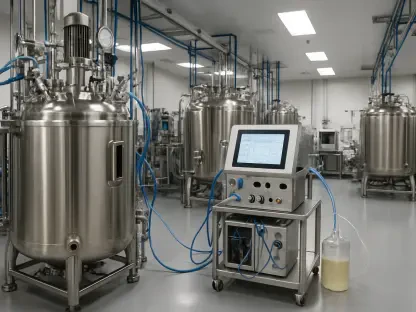In a rapidly evolving world where unpredictability seems to be the only constant, the automotive industry faces an urgent imperative to adapt through artificial intelligence and digital transformation. The dizzying pace of technological advancements, paired with economic and geopolitical flux, has created a challenging environment for auto manufacturers. Against this backdrop, AI emerges as a powerful ally, offering myriad opportunities to revamp business operations, enhance customer experiences, and improve efficiency across the sector. The growing consensus among industry experts is clear: embracing AI is not merely a trend but a necessary step toward resilience and innovation in the automotive domain.
The Critical Role of AI in Automotive Evolution
Transforming Business Operations
The upheaval in traditional business practices, prompted by continuous shifts in global economic conditions, has positioned AI as a keystone for automotive companies striving for operational excellence. AI technologies, such as machine learning and neural networks, hold the potential to refine processes from manufacturing to customer relations. For instance, predictive analytics can preemptively address maintenance issues, reducing downtime and improving manufacturing quality. Moreover, AI-driven insights enable companies to optimize inventory management, ensuring that production lines operate smoothly and without costly interruptions.
AI’s role extends beyond operational processes to affect strategic decision-making. Businesses can leverage data-driven insights to identify market trends and consumer preferences, thereby refining their product offerings and honing competitive strategies. This ability to anticipate and adapt is invaluable in navigating the dynamic and often unpredictable market conditions. Strategic planning is increasingly influenced by AI, fostering a more agile and resilient industry posture.
Enhancing Customer Experience
In an era where customers demand seamless and personalized experiences, AI becomes indispensable in meeting and exceeding these expectations. Natural language processing and chatbots revolutionize customer service by providing real-time assistance and resolving queries with enhanced accuracy and speed. Moreover, AI can anticipate customer needs by analyzing transaction histories and preferences, thereby personalizing interactions and fostering brand loyalty.
AI’s utility extends to the in-vehicle experience, where it enables advanced driver-assistance systems and infotainment features. Through machine learning and computer vision, vehicles can deliver tailored experiences by adjusting to the driver’s preferences and driving habits, transforming what used to be mere transportation into a more integrated, pleasurable experience. As cars become more software-centric, the demand for intelligent, interactive systems in automobiles is poised to increase, redefining the traditional driver-vehicle relationship.
Overcoming Barriers to AI Integration
Navigating Data Challenges
While AI offers substantial advantages, its integration into the automotive industry is not without hurdles. High-quality data is the linchpin of successful AI implementation. Poor data quality can significantly impair AI outputs, leading to erroneous decision-making and negative business outcomes. Thus, automotive companies must invest in strategies that ensure robust data collection, curation, and management.
Another critical consideration is the integration of disparate systems. Many automotive companies rely on legacy systems that function in silos, complicating data sharing and streamlining AI adoption. Bridging these isolated systems through effective integration strategies is essential for maximizing the potential of AI technologies. Harmonized data environments enable companies to achieve quicker insights and enhance their responsiveness to market changes, which are pivotal for maintaining competitiveness.
The Path Forward for AI Adoption
For automotive companies, AI adoption is not a matter of if, but rather when and how effectively it can be utilized. Setting clear process improvement goals is crucial for deriving meaningful gains from AI initiatives. By incorporating elements like process mining and robotic process automation, businesses can drive efficiency while managing costs and fostering user adoption.
Utilizing solutions that come with pre-designed, industry-specific processes can reduce reliance on complex customizations, facilitating quicker time to market. Such solutions also mitigate risks and promote smoother implementation. As businesses aim to future-proof their operations, embracing a cloud-based architecture enables scalability and flexibility, essential traits in the face of continual technological evolution.
AI’s Strategic Importance in Reshaping Automotive
Driving Innovation With AI
The automotive industry’s transition towards a more AI-driven landscape intersects with its focus on innovation and sustainability. As the sector endeavors to embrace CASE (Connected, Autonomous, Software-Defined, and Electrified) paradigms, AI becomes a central pillar in realizing these ambitions. It empowers vehicles to become more adaptable and intelligent, aligning with contemporary consumer expectations for seamlessly integrated technology.
These advancements necessitate continual investment in AI development and deployment to ensure vehicles remain at the forefront of technological trends. The industry must navigate the complex landscape of AI ethics, data privacy, and safety standards to garner consumer trust and regulatory compliance. Successfully striking this balance will determine the sector’s ability to innovate responsibly and sustainably.
Securing Future Success
In today’s rapidly changing world, where uncertainty seems to be the only thing we can count on, the automotive industry is under pressure to adapt, leveraging artificial intelligence and digital transformation. The fast-paced nature of technological developments, combined with ongoing economic and geopolitical shifts, has posed significant challenges for auto manufacturers. Within this hectic landscape, AI stands out as a powerful tool, offering numerous opportunities to overhaul business operations, elevate customer experiences, and boost efficiency throughout the sector. Industry experts widely agree: adopting AI isn’t just a passing trend but an essential move toward securing resilience and fostering innovation in the automotive field. By integrating AI into their processes, car manufacturers can navigate the complexities of today’s market more effectively and stay competitive. With AI’s ability to analyze data, optimize supply chains, and innovate product development, the automotive industry is poised to transform and thrive amid these uncertainties.



